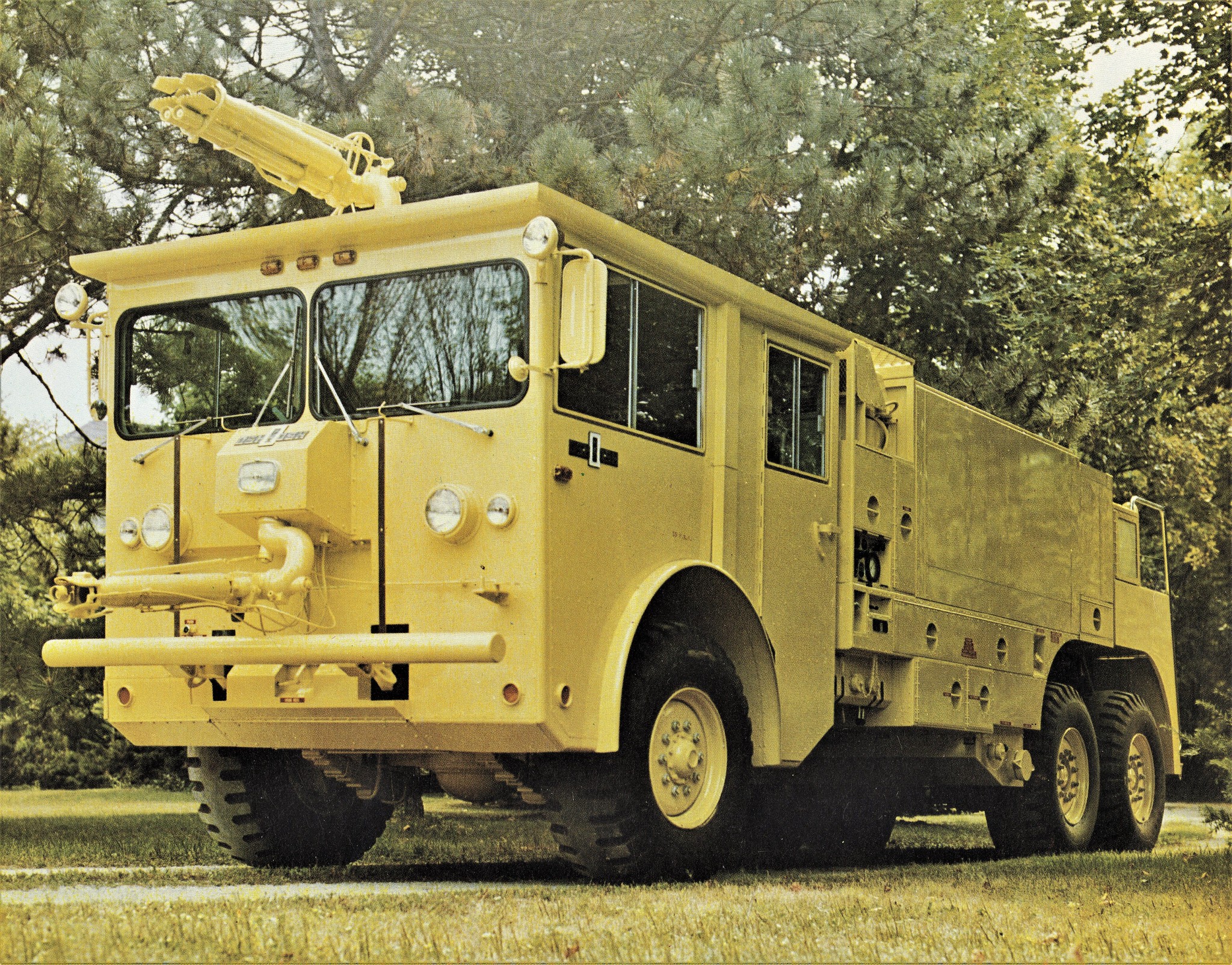Truck accidents are among the most devastating road incidents, often leading to severe injuries or fatalities.
This guide aims to provide clear and accessible information to help you determine if you have a case following a truck accident.
Understanding your legal rights and the steps you can take following such an incident is crucial for securing the compensation you deserve.

Stats About Truck Accidents in the US
| Statistic | Value | Description |
|---|---|---|
| Fatal Crashes (2021) | 5,904 | Number of large trucks and buses involved in fatal crashes, an 18% increase from 2020. |
| Fatality Rate (2021) | 0.191 | Fatalities per 100 million vehicle miles traveled by large trucks and buses. |
| Injury Crashes (2021) | 119,000 | Total injury crashes involving large trucks and buses, a 6% increase from 2016. |
| Location of Fatal Crashes | 54% | Percentage of fatal large truck crashes that occurred in rural areas. |
| Work Zone Crashes | 33% | Percentage of work zone fatal crashes that involved at least one large truck. |
| Average Fatalities in Crashes | 1.12 | Average number of fatalities in fatal crashes involving large trucks. |
What Qualifies as a Truck Accident Case?
A truck accident case involves incidents where a truck is a key factor in an accident leading to damage, injury, or death.
For a situation to qualify as a truck accident case, specific legal criteria must be met—primarily, the establishment of fault and liability.
Definition of a Truck Accident
A truck accident involves any collision featuring a large freight carrier—commonly known as a big rig or semi-truck.
Such Houston car accident lawyer often have catastrophic outcomes due to the massive size and weight of trucks compared to standard passenger vehicles.
Legal Criteria for a Truck Accident Case
To have a valid truck accident case, one must demonstrate that negligence played a role in the accident. This involves establishing that the truck driver or the company that owns the truck failed to exercise reasonable care under the circumstances.
Key elements to establish include duty, breach, causation, and damages.
The duty refers to the legal obligation the driver has to operate the truck safely.
Breach means that the driver failed to meet this standard of care.
Causation connects this breach to the injuries sustained, and damages refer to the actual losses resulting from the accident. This could include physical injuries, emotional distress, property damage, and loss of income.
Proving these elements requires gathering substantial evidence, such as driver logs, vehicle maintenance records, and eyewitness accounts.
Importance of Establishing Fault and Liability
Establishing fault is crucial as it determines who is legally responsible for the damages caused by the truck accident.
Liability dictates who must pay for the damages and losses incurred. In truck accident cases, multiple parties might be liable, including the truck driver, the trucking company, cargo loaders, or even vehicle manufacturers.
Identifying all liable parties is essential because it increases the potential sources of compensation for the injured party and ensures that responsibility is fairly distributed.
Failure to clearly establish fault can result in inadequate compensation and may leave significant damages uncovered.
Determining Fault in Truck Accidents
Determining who is at fault in a truck accident is a complex process that involves analyzing various factors. Establishing fault is essential for pursuing a compensation claim, as it directly affects the outcome of the legal proceedings.
Common Causes of Truck Accidents
Truck accidents are complex events that often result from multiple contributing factors. Understanding these common causes is essential for determining liability and for those involved in an accident to comprehend the potential reasons behind the incident. Here’s a look at the most prevalent causes:
- Driver Fatigue
- Distracted Driving
- Improper Maintenance
- Overloading
- Speeding
- Inadequate Training
- Substance Abuse
- Weather Conditions
Understanding these causes is vital for preventing future accidents and for establishing fault in truck accident cases. For anyone involved in a truck accident, recognizing these factors can also aid in their legal strategy when pursuing compensation.
Role of Truck Driver Negligence
Negligence on the part of the truck driver is often a key factor in truck accidents.
If a truck driver is found to have violated traffic laws—such as speeding, driving under the influence, or not adhering to traffic signals—this can be seen as direct negligence.
Proving this involves collecting evidence such as traffic camera footage, driver logs, and witness statements.
Establishing a direct link between the driver’s actions and the accident is crucial for attributing fault.
Impact of Road Conditions and Weather
Road conditions and weather can significantly affect the likelihood of truck accidents.
Slippery roads, limited visibility, or unpredictably changing conditions can challenge even the most cautious drivers.
When accidents occur under such circumstances, it may complicate the determination of fault. It is necessary to consider whether the truck driver was driving appropriately for the conditions or if negligence was still a factor.
For instance, if a driver failed to adjust speed according to road conditions, this could constitute negligence.
Liability
In truck accident cases, determining liability is as crucial as establishing fault. Liability refers to the legal responsibility for the damages caused by the accident.
This section will discuss the different parties that can be held liable in a truck accident, highlighting the complexities of such cases.
The Truck Driver’s Responsibility
The truck driver is often the first scrutinized for liability in a truck accident.
If the driver engaged in reckless behavior, such as driving under the influence of alcohol or drugs, or violated traffic laws, they can be held directly responsible for the accident.
However, proving the driver’s liability involves more than just establishing negligence; it must also be shown that their actions directly caused the injuries or damages.
The Trucking Company’s Liability
Trucking companies can also be held liable for accidents, a concept known as “vicarious liability.”
If the accident occurred while the driver was performing work-related duties, the employer might be responsible for any damages caused by their employee.
Additionally, if it can be shown that the trucking company failed to follow regulations—such as hours of service rules, or failed to maintain vehicles properly—this can further solidify their liability.
Other Entities That Might Be Liable
Besides the driver and the trucking company, other parties may also bear liability in a truck accident.
For example, if a vehicle’s malfunction contributed to the accident, the manufacturer could be liable for failing to ensure the safety of their product.
Similarly, cargo loading companies may be responsible if improperly secured cargo leads to an accident.
Evidence Necessary for a Truck Accident Case
In truck accident litigation, the evidence collected plays a pivotal role in establishing the facts of the case and proving liability. This section outlines the types of evidence crucial for a truck accident case and explains their importance in supporting a legal claim.
Types of Evidence Needed
The foundation of any truck accident case is built on solid, tangible evidence.
Essential forms of evidence include police reports, which provide an official account of the incident, and witness statements, which offer third-party perspectives on the accident.
Additionally, medical records are critical as they document the extent of injuries sustained, linking them directly to the accident.
Photos of the accident scene, the vehicles involved, and any visible injuries also serve as crucial visual proofs.
Importance of Documentation
Documentation in a truck accident case extends beyond gathering initial evidence.
Continuous documentation of medical treatments, rehabilitation progress, and any other related expenses is vital.
This ongoing collection helps to establish a clear link between the accident and the long-term impacts on the victim’s life, which is essential when claiming compensation for medical costs, lost wages, and pain and suffering.
How Evidence Supports the Claim
The evidence does more than just outline the facts—it tells the story of the accident and its repercussions on the victim’s life.
For instance, trucking logs and maintenance records can indicate negligence on the part of the trucking company if they show skipped safety checks or violations of transportation regulations.
Similarly, traffic camera footage or dashcam videos can provide irrefutable proof of the circumstances leading up to the accident, directly influencing the assignment of fault and liability.
Legal Requirements and Statute of Limitations
Understanding the legal framework and statutory deadlines is crucial when pursuing a truck accident case. This section explains the legal requirements specific to truck accidents and the importance of the statute of limitations.
Understanding the Legal Framework Surrounding Truck Accidents
Truck accidents are governed by a combination of federal and state laws that regulate commercial trucking operations.
These laws include safety standards, licensing requirements, and hours-of-service regulations intended to ensure the safety of both the truck driver and the public.
Compliance with these laws is critical, and any deviation can significantly impact liability in an accident case.
Explanation of the Statute of Limitations and Its Importance
The statute of limitations is a law that sets the maximum time after an event within which legal proceedings may be initiated.
In the context of truck accidents, this period varies by state but generally ranges from one to three years from the date of the accident.
Understanding this timeframe is crucial because failing to file a claim within the statute of limitations typically results in the loss of the right to sue.
Legal Process in Truck Accident Cases
Navigating the legal landscape following a truck accident involves a structured process, which is crucial for the successful resolution of a claim. The steps below outline the typical legal proceedings in truck accident cases:
- Collection of Evidence
- Filing a Claim
- Discovery Phase
- Negotiation
- Trial
- Verdict and Settlement
This structured process ensures that all aspects of the case are thoroughly examined and that justice is served.
For those affected by a truck accident, understanding this process is crucial for preparing effectively and for setting realistic expectations regarding the outcome of their case.
Engaging a skilled legal team can provide invaluable assistance in navigating these complex proceedings.
Seek Advice from a Houston Truck Accident Attorney
If you have been affected by a truck accident and are unsure of your next steps, it’s critical to consult with a knowledgeable Houston truck accident attorney.
Sutliff & Stout can provide the guidance and support you need to pursue your case effectively.
Call (713) 405-1263 today to ensure your rights are protected and to start your journey toward just compensation.
- What is a Catastrophic Injury? - January 30, 2025
- Essential Guide for Pedestrians Hit by Cars in Texas - January 30, 2025
- How to File a Wrongful Death Lawsuit in Texas - January 15, 2025








 (713) 405-1263
(713) 405-1263  550 Post Oak Blvd, Suite 530
550 Post Oak Blvd, Suite 530